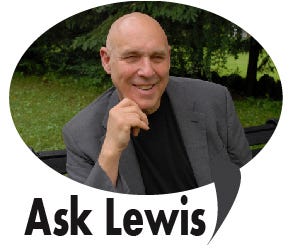Best Wisdom Tips to What is a Zen Kōan?
The essence of Zen and struggle-free transformative thought
“These newsletters serve a demographic of highly intelligent readers, and deep thinkers with a passion for ideas, critical thinking, and unknown possibilities. The path to finding happiness are among those ideas. Readers of my posts are usually tired of being patronized elsewhere by fact-less, opinionated know-nothings, who complain about everything they don’t like, but lack a willingness to think about, find resources, or create life hacks, shortcuts, and solutions to fix what they don’t like.”
——————————————————————————————————————
On a personal note: Please excuse grammatical errors, typos, repetition, and any general nonsense, and such in this post. I am getting a bit older now, and I have about 20,000 pages of information that must get published before I leave the mortal coil. I simply write and publish more than my humble editors are able to correct. If you find enough errors you are welcome to contact me about being an editor of my work.
Thanks for sharing this newsletter with your friends and associates.
Join us at our free spirituality, self-improvement for beginners Group and Forum for free tips, tools, and strategies to become a more introspective, contemplative, and happier person
https://www.facebook.com/groups/455029215769173
———————————————————
Q. Lewis, what exactly is a Zen Kōan? I keep researching the concept but still don’t understand. It seems like a mind game built around nonsense.
A. Many students of spiritual philosophy know the phrase Zen kōan and know it is a path of profound and subtle wisdom, yet they have never been able to decipher what exactly a kōan is?
On a basic level, a Kōan is a story, dialogue, utterance, question, riddle, movement of the body, or statement which is used in Zen practice to provoke the “great doubt” — the nature of reality.
A Kōan can be used for many purposes including as a spiritual exercise to practice or test a student’s progress in Zen. In many schools of Zen, embracing and exploring Kōans is an essential element of Zen practice.
So one might say to a newbie that a Kōan is a riddle or question. Yet, it is not just an ordinary riddle or question. In ordinary life, a riddle has an answer. Yet, a Kōan has no single logical answer. The purpose of a kōan is not to find an answer, but to open the door of the student’s mind to authentic wisdom. How does one do this? By pondering over the very nature of the riddle.
Kōans are, usually directed at breaking our pre-formed assumptions and notions by challenging the very basics of our thought patterns. Ultimately, the process of solving the Kōan sheds light on many facets of thought that are not usually explored in ordinary life. Essentially a Kōan has no answer, but it can be resolved on a personal level. This happens by presenting crucial insights on the nature of life, and reality to the individual exploring the Kōan!
For example, in one of the great classic Kōans, a teacher asks a student “Tell me what was your face before your parents were born.” Here the teacher is not asking the student to describe their face, but is asking this student to think about the concept of ‘identity’ and ‘self-recognition’. Again, since this Kōan has no right, wrong, or even a direct answer, it motivates the student to wonder and ponder the solution.
In an ordinary situation, a student would intuitively go about figuring out an intellectual or ‘clever’ answer to the Kōan.
Here is a classic Kōan
A group of students was gathered with the great Master Ummon and another teacher Shishin
Ummon asked an advanced student to share some wisdom with the group.
The student told Ummon- “Brilliancy of Buddha illuminates the whole universe.”
Before he finished the phrase, Ummon asked: “You are reciting another’s poem, are you not?”
“Yes”, answered the student.
“You are sidetracked,” said Ummon.
Afterward, another teacher, Shishin, asked all the pupils: “At which point did that student go off the track?”
So, in Zen, the student sits and sits trying to imagine ‘their face before their parents were born’. Eventually, they realize this can’t be done! The student then realizes that the concept of identity is not dependent on facial features or relationships, but something totally different! The moment this is realized the student understands they did not ‘exist’ before their parents were born. Now the student begins to ponder the concept of ‘individuality’ and ‘existence’.
The Takeaway
Rather than accepting individuality as a fact…the mind of the student begins a roller coaster ride of self-discovery and self-doubt. Useless thought patterns, left-brain intellectual and rational thinking as well as old prejudiced notions and borrowed information are broken, creating experience-based wisdom.
———————————————————
Here is an excerpt about him from my program, The Best Loving Spiritual Life Course
Learn more about the course by clicking below or copying and pasting the link in your browser.
https://mailchi.mp/c5b84f76275b/the-best-loving-spiritual-life-course
———————————————————
Author: Lewis Harrison is a practical philosopher, an Independent Scholar, and a Results-Oriented Success Coach. He has a passion for knowledge, personal development, applied game theory, self-improvement, creativity, innovation, problem-solving, functional medicine, natural healing, and story-telling. He is a practitioner of Transmoderm Zen. Lewis Harrison is also a speaker, best-selling author, and the creator of The Best Loving Spiritual Life Course
—————————————————
This newsletter is an excerpt from the The Best Loving Spiritual Life Course
Click on the Meditator Graphic just below or go to the link below the smiley face to learn more about the course …
https://mailchi.mp/c5b84f76275b/the-best-loving-spiritual-life-course
——————————————————
“It is very difficult to stay motivated and inspired on your life journey without being mentored by a results-oriented life coach.
Are you looking for a mentor or a compassionate, results-oriented life coach? I’d love to work with you and help you to get to your “best life.
” Let's schedule a 15-minute interview to determine how I can help you create a customized and personalized program for creating your best life. Email me at LewisCoaches@gmail.com
Lewis
https://mailchi.mp/c5b84f76275b/the-best-loving-spiritual-life-course










